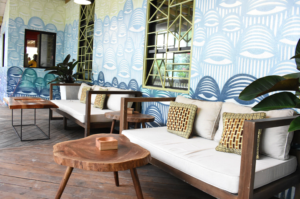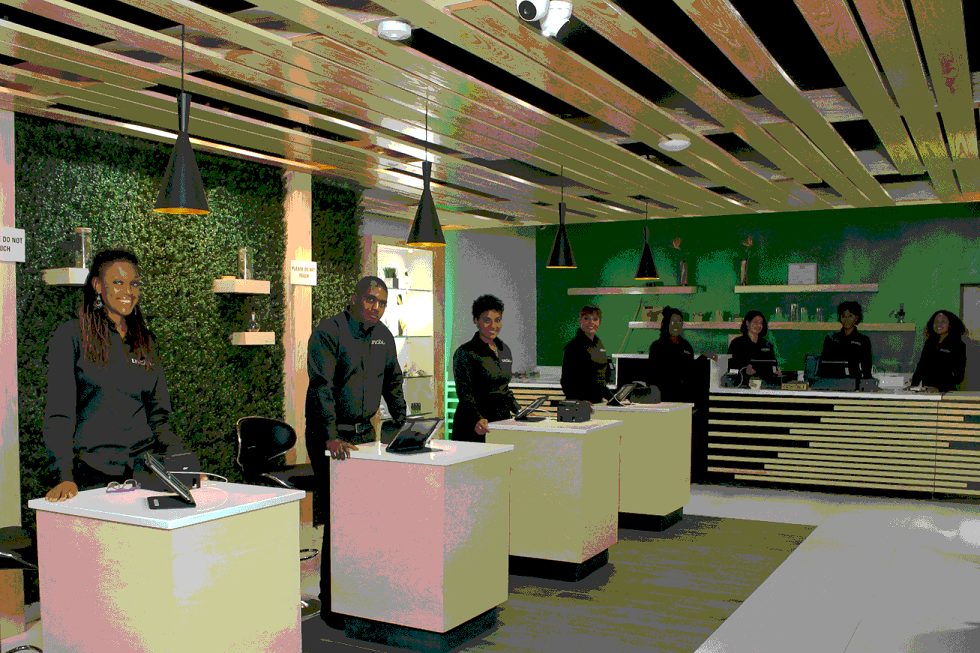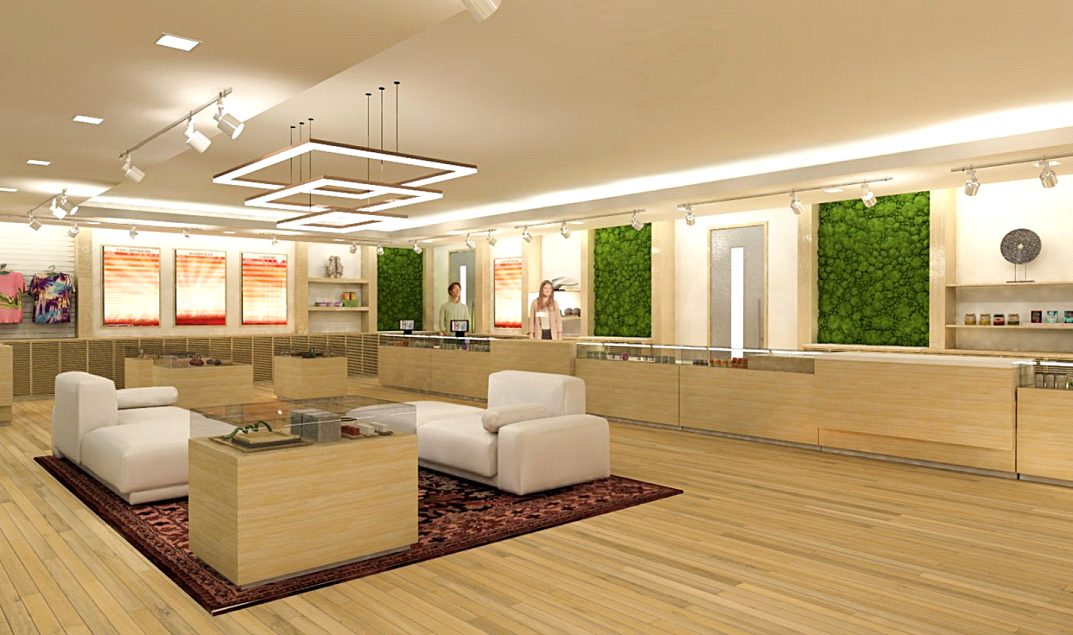Jamaica remains the pearl of the Caribbean despite centuries of struggle combined pre and post-independence. By 1962, the year of independence, Jamaica had come through the longest reign of British rule as a colony and a member of the Commonwealth Empire.
But lest we forget, just post the extinction of the Spaniards, and the barbarous enactment of slavery for which Europe and Africa are equally responsible, Jamaica was known to be one of the largest producers of sugarcane, and having “the most perfected plantation system” in the Caribbean.
In the evolution of time, thousands of Chinese and Indians descended on the island to pick up the slack of the 80% of Africans who had by then set their sights on other endeavors.
HOW THE WEED GOT THERE
The assumption is that the Indians brought the weed to the island and Rastafarians eventually dubbed it, the holy plant. This might explain why the Hindu word “ganja” is more widely used in Jamaica, as opposed to marijuana.
The use of ganja soon found a foothold among the less privileged, in other words, people of a darker hue in Jamaica, and held sway within the Rasta “cult.” Not only was it deemed to have helped to deepen their faith in their own spiritual belief and black consciousness, but they had also found that ganja had medicinal values, especially when used for tea.
The Rastafarian movement dates back to the 1920s and was somewhat fueled by the thought provoking Jamaican and Pan-African, Marcus Mosiah Garvey, whose Universal Black Negro Association heeded the call to make right, the atrocities and inferior treatment of Blacks, primarily in Jamaica and the US.
The coronation of Haile Selassie, otherwise known as Ras Tafari or Prince Tafari, as the word Ras connotes, along with the Biblical assumed accredited titles of King of Kings, Lords of Lords, and Conquering Lion of the Twelve Tribes of Judah, engendered a further deepening of faith, pride and purpose, which was heretofore, almost nonexistent. Therein lies the emergence of a more organized Rastafarian movement, not necessarily by structure, but by some befuddling sensibilities that recognized a “Savior” of Black people of African ancestry, through Haile Selassie. This also cemented a sense of self identity. Rastas were fighting for freedom as they knew that they were taken against their will to the Americas and they considered themselves to be living in virtual captivity.
Dreadlocks and the holy herb (ganja) became synonymous, although, truth be told, by virtue of the relatively marginal number of Rastafarians, more regular citizens of the island smoke ganja. Political Support.
AMERICA TAKES THE REIGN
The war which ensued on the cultivation and export of ganja in the 1970s, created the void that was filled by the importation of crack/cocaine, a hallucinogenic drug of which, it is alleged that the effects are still evident, and some believe, unquestionably contribute to the island’s crime wave.
This war on “drugs” which instigated a move by the US Drug Treaty of 1998, and which served to broadside Jamaica’s burgeoning, albeit underground trade, was seen by some as a “scam,” meant to clench the country by its balls and was really a bid for time to allow for the US cultivation and capitalization of its own, of this “holy plant.”
AMERICA STRIKES MARIJUANA GOLD
So now that the dust has settled across America and ganja is legal in 11 states for adults over the age of 21, and legal for medical use in 33 states, and now that Colorado, Washington and California has spun gold from the sale of this once forbidden plant, it is time for Caribbean leaders to move swiftly to unhinge these countries from the clench of the so-called friggin draconian treaties to which we are party to, not just by softening the impact of law but, as some have already done, by legalizing quantities for personal use and nullifying marijuana related crimes for which thousands of individuals have been incarcerated over many years.
KAYA HERB HOUSE IN KINGSTON JAMAICA

Up to 2014 the Jamaican law prohibited the cultivation, possession, use, and exchange of all recreational drugs….. without any due diligence. This law has created a burden on tax payers, law enforcement agencies, the court system and prisons. Not to mention unreasonable lengthy sentencing and the life long criminal record that becomes their stigma. As a result, “marijuana reform has been gaining both public and political support in Jamaica, especially within the last 10 years.
In 2013, the House of Representatives unanimously voted in favor of a motion to decriminalize marijuana possession for personal use. Fenton Ferguson, Jamaica’s Minister of Health announced in November 2013 that he was “fully on board” for legalizing marijuana use for medicinal purposes. Damion Crawford, Jamaica’s then Minister of State for Tourism and Entertainment highlighted the nation’s harsh and disproportionate penalties, claiming that “for personal use, the punishment of a criminal record is too much.” – tni.org
The reform bill that was approved in the House of Representatives in 2015 is sadly lacking. It allows decriminalization for religious, medicinal and scientific purposes only. But it is the one loophole on which the government can stand without breaching its commitment to the American governing body.
Bear in mind that the vast majority of Jamaicans and Americans who indulge, do so socially, this, while the unsuspecting Jamaican government of the day, through a 1988 Convention, had added its voice and commitment to an association that deems marijuana/cannabis/ganja/weed, a narcotic and a dangerous drug… by what measure, is anybody’s guess.
EPICAN DISPENSARY OPEN FOR BUSINESS IN JAMAICA

May 2014 saw the tabling of a 12 point plan to expunge all criminal records for people who had been previously charged with possession of weed. It is yet unknown if this has been ratified.
Reports gleaned imply that poor young men in Jamaica were targeted and up to 300 a week were charged for possession of marijuana. In fact, it states that around 11.5% of Jamaican inmates were incarcerated for drugs-related offences. As a consequence, getting, “a police record that ruins their prospects of employment and migration, while exposing them to contagion with hardened offenders.” tni.org
AMERICA CLENCHES JAMAICA BY THE BALLS
But America is not happy. As a purview of the International Narcotics Control Strategy – Report, they step in from time to time with absurd claims such as that the low number of drug-related arrests in Jamaica indicates a passive federal attitude towards fighting the use and trafficking of drugs. Only this, to their mind, substantiates evidence that the drug control initiatives are working.
So while Jamaica had no choice but to be a signatory to America’s draconian measures, she continues to peddle along to try to work out the logistics of freeing up the herb, even while being gripped by the “balls.”
It is well worth revisiting the extent of America’s “threat” to our island under the guise of these Agreements, because though we continue to pay homage to the Queen, in recognizing that Jamaica is considered “Her lands”, we now have a foreigner who has taken lodging in our very homes and by virtue of their strength of power, dictate how we must live by toeing their lines.
Here is the excerpt from tni.org:
1) “The United States supports a wide range of efforts designed to address crime and violence affecting Jamaican citizens, primarily through the Caribbean Basin Security Initiative (CBSI). CBSI is a security partnership between the United States and Caribbean nations that seeks to substantially reduce illicit trafficking, advance public safety and citizen security, and promote social justice.”
2) The United States also supports and funds local task-forces with the purpose of eradicating Jamaica’s estimated 15,000 hectares of cannabis crops. Civilians are employed and supervised by police and military personnel to cut growing plants, seize seedlings, and burn them in the field.
3) Additionally, former Prime Minister Bruce Golding noted that “decriminalization can invoke international consequences which would pose severe challenges for us,” including “significant impact in terms of our trade arrangements with the United States.” Countries which do not follow along with the United States’ prohibitionist tactics regarding to the War on Drugs face the risk of “decertification”. Decertification occurs when the U.S. decides that countries involved in the drug trade (either as producers, traffickers, or both) are not cooperating effectively with U.S. counter-narcotics programs. The consequences of decertification include the withdrawal of U.S. aid, refusal of visas, U.S. opposition to multilateral loans and possible trade sanctions.
NARCOTICS MIH FOOT!
In the meantime, Illinois has been the most recent to come on board in the legalization and sale of marijuana and its byproducts. Having started on January 1, 2020, its Governor JB Pritzker has come out flying with a sweeping “Recreational Marijuana Bill” signed into law back in June, 2019. The bill contains a wide “criminal justice component, expunging the records of potentially hundreds of thousands Illinois residents who have previously been convicted for possessing marijuana under previous laws. Up to 770,000 Illinois residents may qualify for expungement, according to ABC News.
BLOOMING ORGANICS DISPENSARY IN CALIFORNIA

The bill will also proactively create opportunities for minority business owners to capitalize on the new industry.”
A Forbes report published March 26, 2019 states: “Out of ten legal states (plus D.C.), seven currently tax and regulate revenue-producing stores. With those taxes typically 10 to 37% higher than local sales tax, it comes as little surprise that some states raked in hundreds of millions of dollars last year. Out of all states where recreational marijuana has been given the green light, Washington made the most in taxes last year with an estimated $319 million. California was close behind with $300 million while Colorado recorded the third-highest estimated tax revenue with $266 million.”
The Forbes report goes on to say that, “the taxes support jobs in school construction, drug abuse programs and medical research, among other areas. Aurora in Colorado is a notable example of pot money put to good use with the municipality using $900,000 to open a space for individuals experiencing homelessness.”
Jamaica, which has been stigmatized for decades as being the ganja smoking capital of the world, must now hold strain with its hands tied and watch America run off with “the whole hog.” It would be interesting to know what the annual revenue from the sale of ganja and its byproducts would look like for Caribbean countries. Individuals serving prison time for possession or recreational use of a spliff, should be released forthwith. Such should be considered prosecutorial abuse in today’s day.
Our little Caribbean island of Jamaica has been a catalyst in many walks of life, and we should not allow objectionable institutions to usurp sound judgment.
On the surface, there should be little or no resistance borne of the notion that marijuana offences are correlated to other heinous crimes, and the fact that marijuana is now heavily used for medicinal purposes, bares the truth that this is not necessarily so.
Let’s stay true to our moral convictions and fight tooth and nail to get out of the grip of these agreements that we were blindsided in becoming a party to, and do the right thing.
MARLENE DALEY
Founder & Publisher


